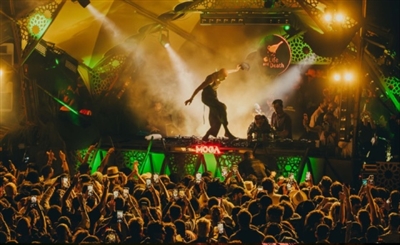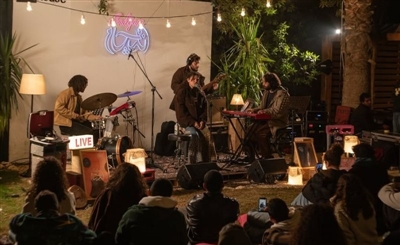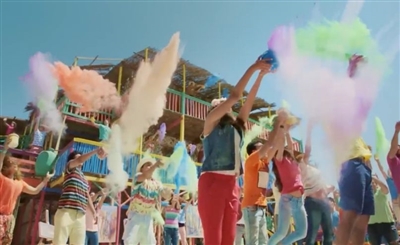Arab&B: Palestinian Artist TÄRA Crafts a Sonic Bridge Between Cultures
The Italian-Palestinian artist reclaims identity through deep basslines and deeper truths.
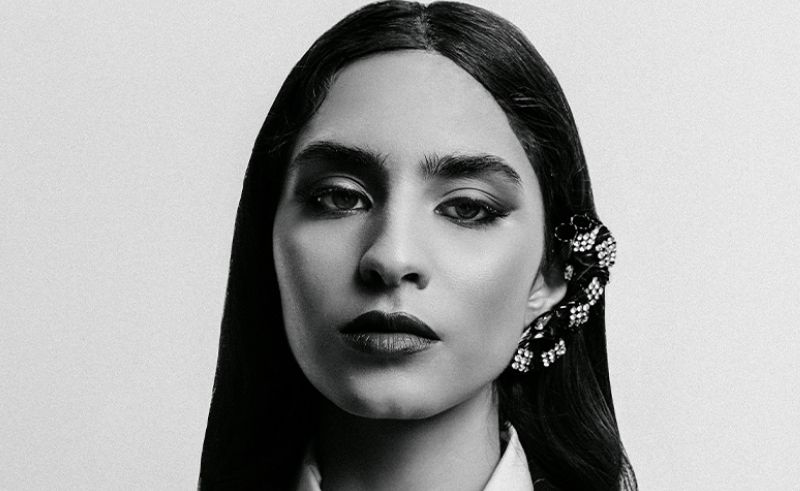
TÄRA’s latest single, ‘Ya’aburnee’, is not a love song—it’s a warning shot. Released earlier this year, the track leans into the darker corners of devotion, transforming a familiar Arabic expression of affection—“you bury me”—into a chilling meditation on obsession, power, and emotional entrapment. Through brooding sub-bass, mournful qanun flourishes, and breathy R&B vocals, the Italian-Palestinian artist continues to carve out her own sound: one she calls Arab&B.
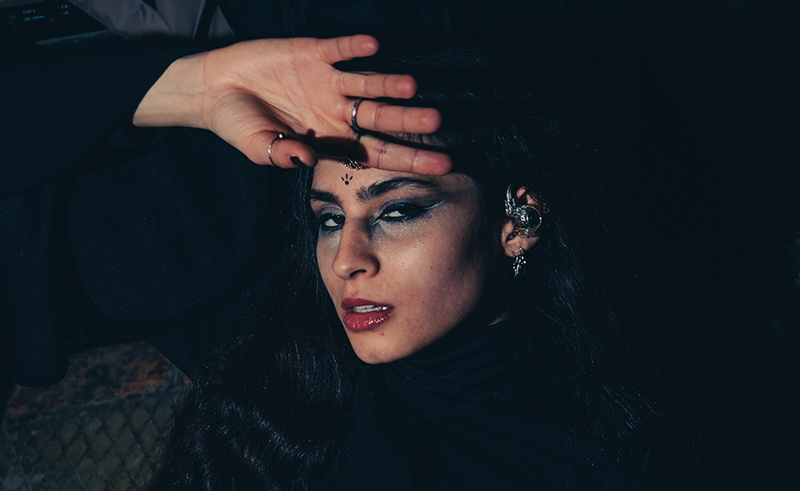
“‘Ya’aburnee’ tells the story of obsession in love, how you end up being tied in a relationship against your rational will,” TÄRA tells SceneNoise. “Killing the idea of the person means killing a piece of you as well. Unfortunately, it also tells the story of many women. Especially here in Italy, the last decade has been terrifying. So many femicides... it breaks my heart.“
While this kind of storytelling may be new to the Italian pop mainstream, TÄRA isn’t looking to fit in. She’s looking to make pop music that hits and bumps, that haunts and lingers. “I think that we can and have to tell stories with meaning through pop music,” TÄRA adds. “Pop should not just be fun. I think there is a duality.”
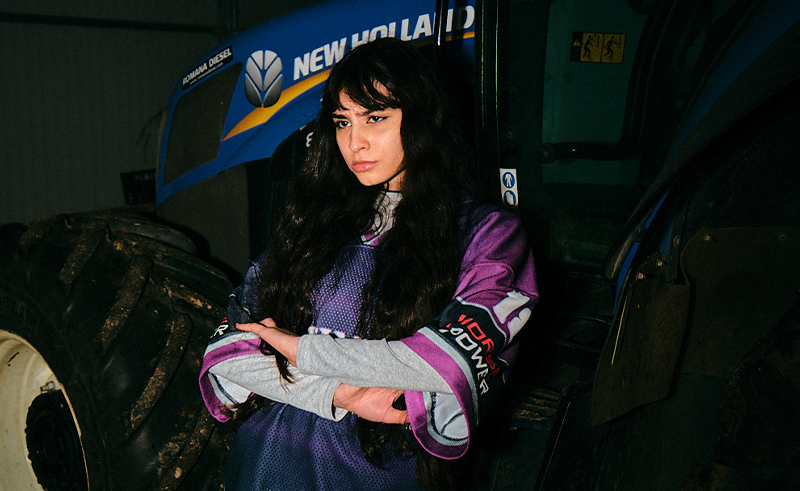
TÄRA’s music is deeply personal, but it never tries to be self-serving. In fact, it feels like a balm for everyone who grew up in-between—especially second- and third-generation diaspora kids. Her genre-defiant releases fuse the sonic textures of deep R&B and UK-style bass with Arabic melodic scales and visual storytelling. Think Adele via Fairuz, Middle Eastern melodies and sub-bass textures. “Making this kind of mix is a coping mechanism for my inner child,” she says. “Musically, I think it represents something very new, especially here in Italy. Finally, there’s music representing a big part of society that is still too invisible.”
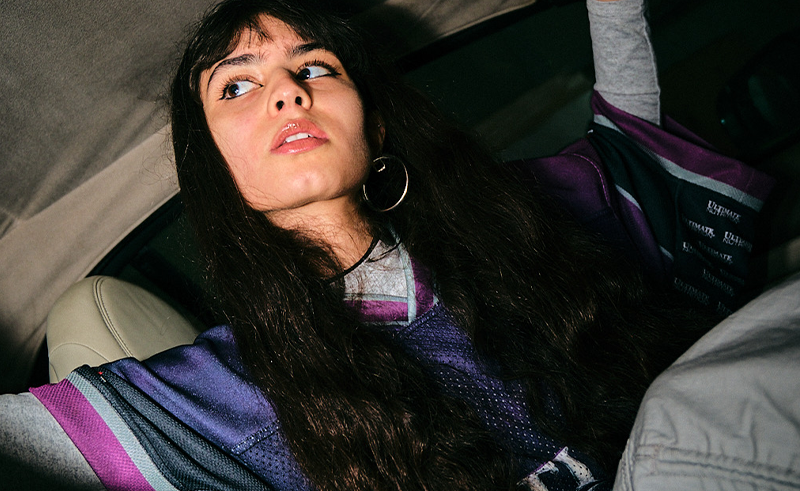
Her early shame around her identity has since evolved into creative fuel. “I used to be very ashamed of my origins,” she shares. “I hated the way I looked, the different things I ate… I just wanted to be like everyone else. Thank God I learned that all of that is a big cultural background. My heritage is my only weapon against cultural appropriation and cancellation.”
That act of reclamation pulses through her process. Most of her songwriting begins visually, with words or images that surface late at night. From there, she layers meaning—sonically, emotionally, politically. She’s currently drawn to synth-heavy atmospheres and the kind of cinematic tension favoured by artists like The Weeknd. But it’s always personal. “I try to re-interpret them in my own style… I’m not sure what’s coming out,” she laughs, “but I like it.”
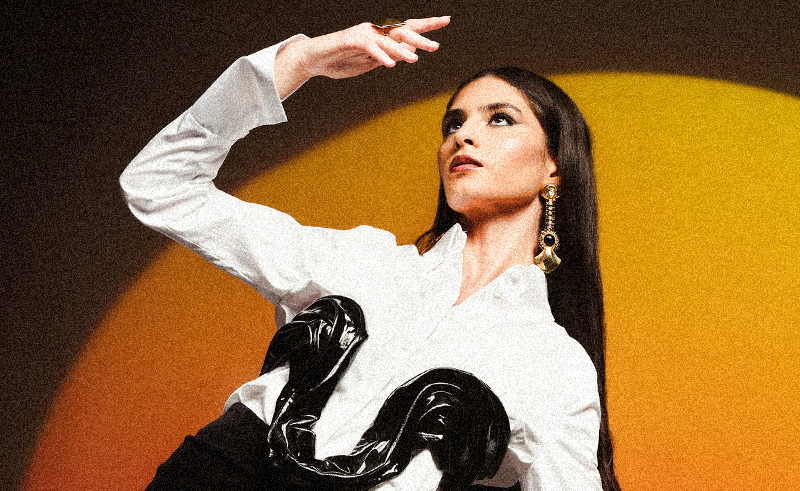
Trilingual and introspective, TÄRA is acutely aware of the barriers and power of language. “Music transcends language. Meaning is found within the soul. I try to represent visually and instrumentally what I’m trying to say, so the best feedback I can get is knowing that the audience is understanding on a deeper level.”
She’s also clear-eyed about the limitations of the local music scene. “Even R&B in Italy is something new. It’s not fully acknowledged yet, so that’s a challenge. But me and many other upcoming artists are reshaping the sounds.” She doesn’t expect shortcuts. “I think I’m still somehow in the middle. But it’s okay. I like doing it on my own with no help.”
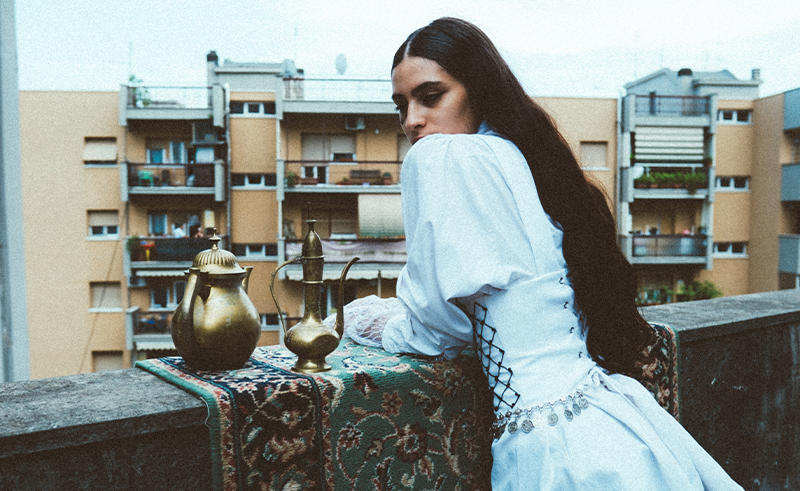
TÄRA is currently working on a follow-up single set to drop before summer, and teasing surprises for September. A debut EP is slowly taking shape. She also hopes to collaborate with other Arab artists—Zeyne, Bayou, Saint Levant—who are reimagining the region’s soundscape in parallel ways.
And when it comes to performing her music live? She already knows what the stage should look like. “Honestly, as long as there are Persian rugs, I’ll feel at home and deliver my best,” she smiles. “I’d love one day to design a stage that could tell the Palestinian story through elements… even through smells.”
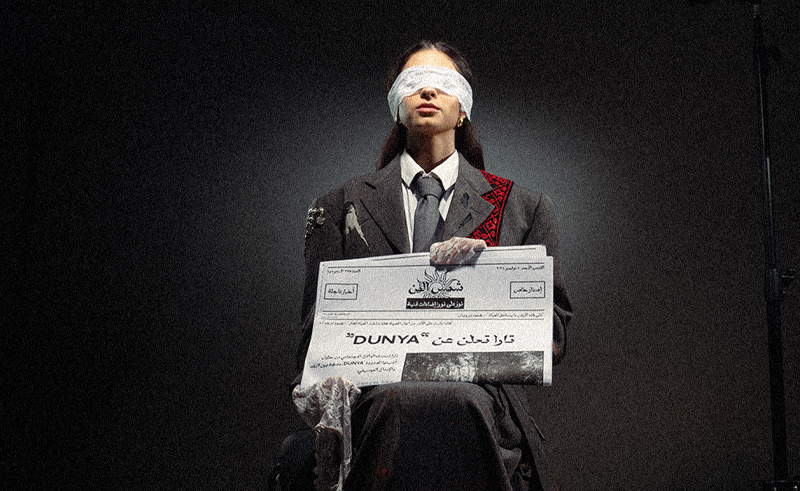
Before leaving, she offers a quiet message to the young Arab girls who might be feeling unseen. “You are not invisible. Your voice is worth being heard. Your heritage is your biggest inspiration.”
- Previous Article Rap of the Week | Apr 6 - 13
- Next Article Tamino on Mythology, Egypt’s Charm & The Soulful Essence of ‘Sahar’
Trending This Month
-
Jan 29, 2026
-
Feb 20, 2026



